Introduction

Virtual reality (VR) gaming has taken the world by storm, captivating players with immersive environments and lifelike interactivity. This multi-billion-dollar industry is at the forefront of innovation, blending art, technology, and storytelling. But the demand for increasingly sophisticated VR games comes with its challenges: high development costs, technical complexities, and tight deadlines.
Enter tailored outsourcing for virtual reality game development—a solution that allows game studios to partner with external specialists for specific tasks. By leveraging tailored outsourcing, studios can overcome technical hurdles, optimize costs, and speed up production without compromising quality. In this article, we’ll explore how customized outsourcing solutions can transform VR game development, making it accessible and efficient for studios of all sizes.
Understanding VR Game Development: The Art and Science of Immersion
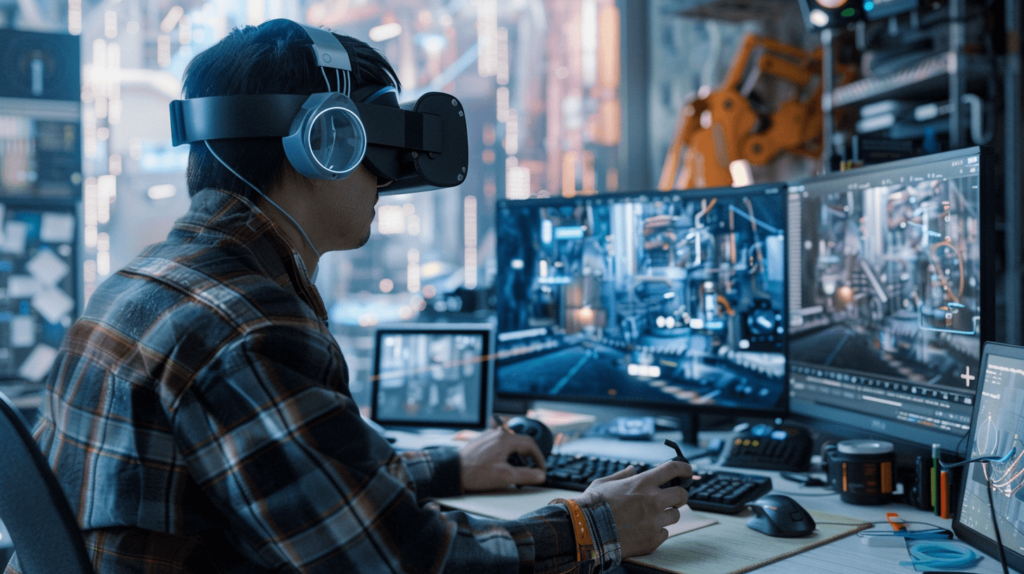
Creating a VR game isn’t just about writing code—it’s a multidisciplinary endeavor that requires expertise in design, programming, and storytelling. From realistic physics to seamless hardware compatibility, every element must work harmoniously to deliver an engaging experience.
Key Components of VR Game Development:
World Building: Crafting detailed 3D environments that transport players into virtual realms.
Interactive Mechanics: Ensuring realistic movements, object interactions, and physics-based behaviors.
User Interface (UI): Designing intuitive controls and seamless navigation within the VR space.
Hardware Optimization: Ensuring compatibility with headsets like Oculus Quest, HTC Vive, and PlayStation VR.
Each of these components requires specialized skills, and assembling a full in-house team for every aspect can be both time-consuming and expensive. Tailored outsourcing addresses this challenge, enabling studios to collaborate with external experts for specific tasks while focusing on core creative aspects.
What is Tailored Outsourcing in VR Development?
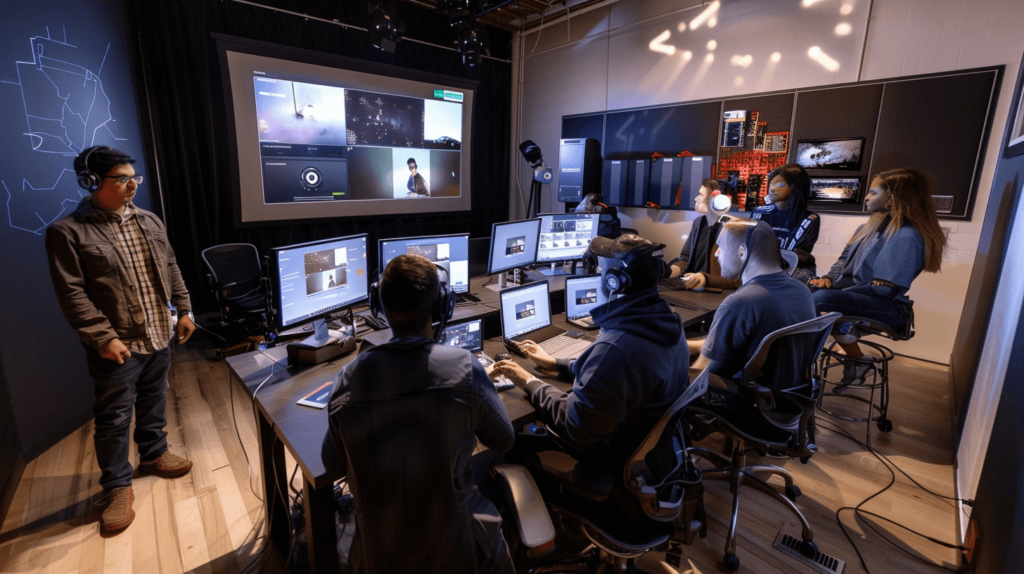
Tailored outsourcing is the process of customizing external development services to meet the specific needs of a VR project. Unlike one-size-fits-all outsourcing, tailored solutions align with the studio’s goals, ensuring efficient workflows and high-quality results.
What Makes Tailored Outsourcing Unique?
Precision: Outsourcing only the tasks where expertise is needed, such as 3D asset creation or AI programming.
Flexibility: Scaling resources up or down based on project requirements.
Collaboration: Seamlessly integrating outsourced work into in-house workflows for cohesive results.
Examples of Tailored Outsourcing Services for VR Games:
3D Asset Creation: Designing high-quality characters, environments, and props.
Programming and Coding: Building game mechanics and VR physics systems.
Sound Design: Crafting immersive audio experiences with soundscapes and voiceovers.
Testing and QA: Conducting rigorous performance checks for hardware compatibility and gameplay issues.
This approach ensures that the final product meets industry standards while allowing studios to optimize time and resources.
The Benefits of Tailored Outsourcing for VR Game Development
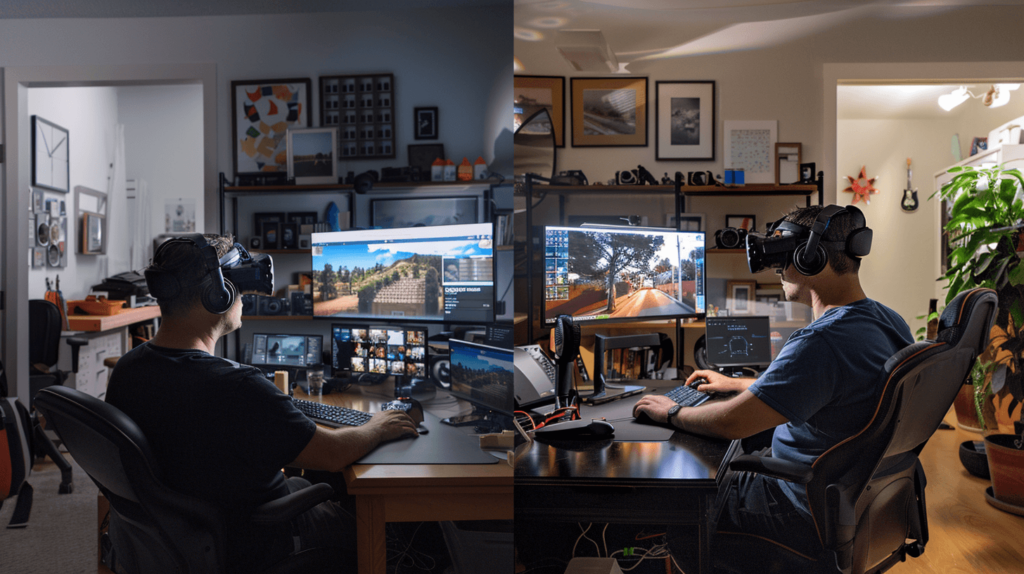
Access to Specialized Expertise
VR game development requires niche skills in areas like AI programming, motion capture, and 3D modeling. Tailored outsourcing connects studios with professionals who excel in these domains, ensuring top-notch results.
Example: A small indie studio outsourced 3D animation to a specialized team, resulting in hyper-realistic character designs that captivated players.
Cost Efficiency
Developing VR games in-house often comes with high overhead costs, from salaries and training to hardware and software investments. Outsourcing eliminates these expenses, allowing studios to allocate their budgets more effectively.
Insight: A report by Deloitte highlights that businesses save 20–30% on development costs through strategic outsourcing.
Faster Time-to-Market
In the fast-evolving world of gaming, speed is critical. Outsourcing enables studios to delegate time-consuming tasks, accelerating production timelines.
Case Study: A VR studio outsourced game testing to reduce debugging time by 40%, allowing them to launch their game ahead of schedule.
Scalability and Flexibility
Tailored outsourcing allows studios to scale resources according to project demands, whether it’s ramping up for a major launch or scaling back during quieter periods.
Focus on Creativity
By outsourcing technical tasks, in-house teams can dedicate their time to storytelling, gameplay design, and other creative pursuits that define the game’s success.
How to Choose the Right Outsourcing Partner for VR Game Development
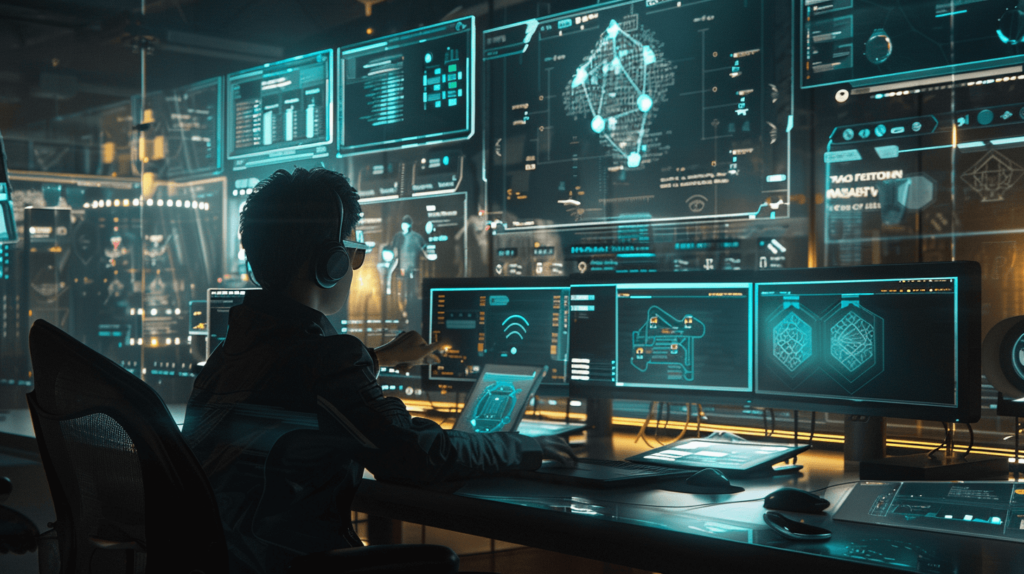
Selecting the right outsourcing partner is critical to the success of a VR project. Here are some steps to help you make an informed choice:
Assess Expertise
Look for outsourcing companies with proven experience in VR game development. Review their portfolios and client testimonials to gauge their capabilities.
Check Communication Skills
Clear communication is essential for successful collaboration. Choose a partner who is transparent and responsive, ensuring that project updates and feedback are exchanged seamlessly.
Pro Tip: Use tools like Slack or Trello to keep communication organized and efficient.
Ensure Data Security
VR projects often involve proprietary technology and sensitive data. Ensure that your outsourcing partner has robust security measures in place, such as NDAs and secure file-sharing systems.
Look for Cultural Alignment
Cultural compatibility can enhance collaboration, especially for creative tasks. Choose a partner who understands your studio’s vision and values.
Evaluate Scalability
Select a partner who can adapt to your project’s changing needs, whether it’s increasing manpower or meeting tight deadlines.
Example: A major gaming company partnered with a sound design outsourcing team to create immersive audio for a high-budget VR game. The collaboration enhanced the game’s quality and reduced production time.
Real-World Success Stories: The Impact of Tailored Outsourcing on VR Games
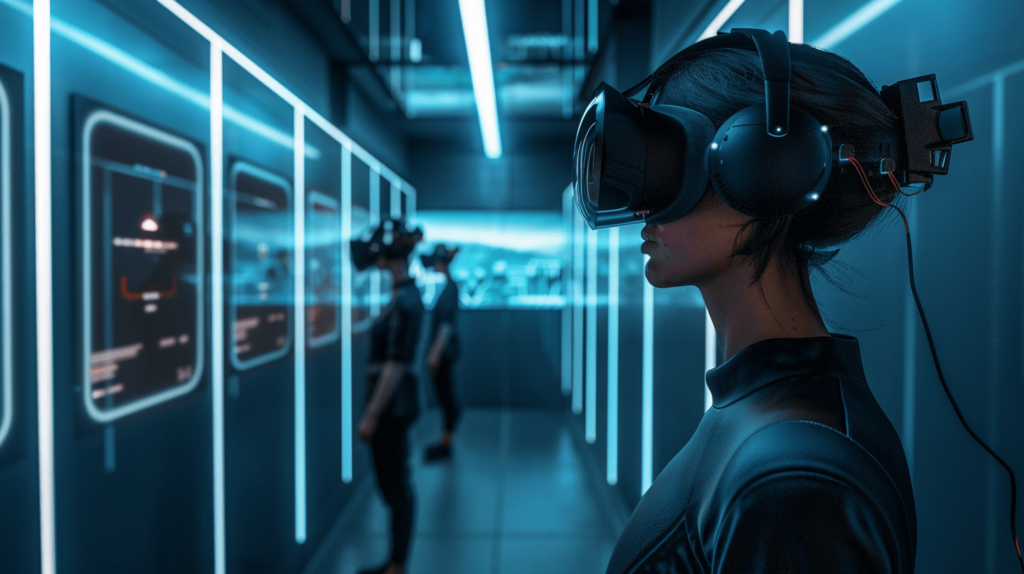
To truly grasp the transformative power of tailored outsourcing in virtual reality game development, let’s dive into some real-world success stories that highlight its potential.
Case Study 1: Elevating Immersion with Outsourced 3D Assets
A mid-sized gaming studio set out to create a VR survival game that plunged players into an apocalyptic jungle. While the team excelled in storytelling and gameplay mechanics, they lacked the in-house expertise to design hyper-realistic environments.
By outsourcing 3D asset creation to a specialized team, they brought to life intricate details like dense foliage, shifting shadows, and dynamic weather systems. The result was an immersive world that left players in awe.
Outcome:
Saved 35% on development costs.
Reduced production time by six months.
Garnered rave reviews for visual fidelity and atmosphere.
Case Study 2: Revolutionizing Gameplay with Outsourced AI
An indie developer sought to differentiate their VR stealth game by incorporating intelligent, unpredictable NPCs. Lacking the resources to build advanced AI from scratch, they turned to an outsourcing partner with expertise in machine learning and game AI.
The outsourced team developed NPCs that adapted to player behavior, making the game’s challenges more dynamic and engaging.
Outcome:
Enhanced replayability due to unpredictable gameplay.
Increased player retention rates by 45%.
Case Study 3: Streamlining Launches with QA Outsourcing
A major studio gearing up for the launch of a high-profile VR racing game faced an overwhelming testing workload. They partnered with a QA outsourcing team to handle rigorous testing across multiple VR platforms.
The team identified and fixed over 300 bugs, ensuring a polished release that ran smoothly on all major headsets.
Outcome:
Reduced post-launch patch updates.
Achieved a Metacritic score of 91, boosting sales and player trust.
Emerging Trends in Tailored Outsourcing for VR Game Development
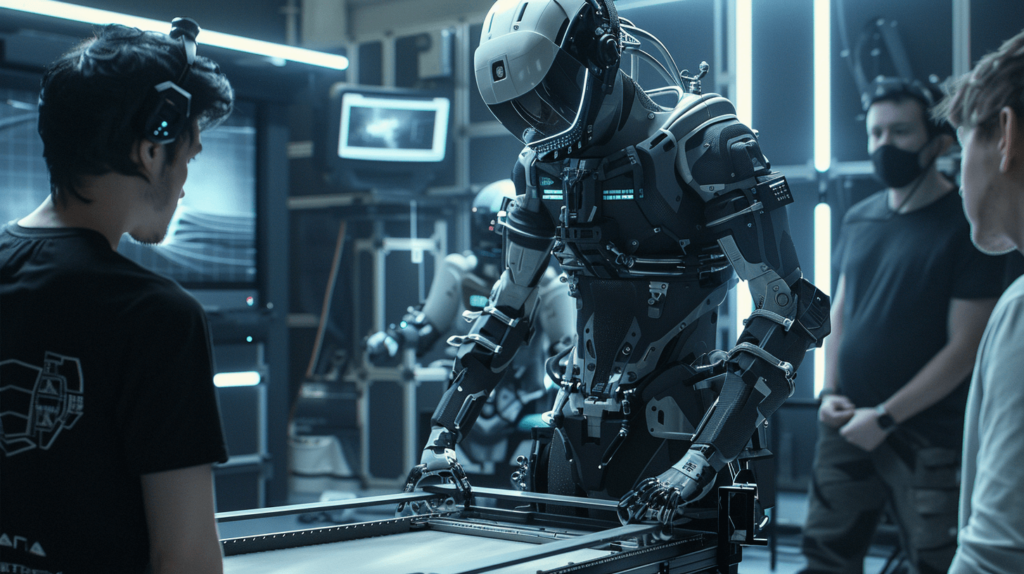
As technology evolves, the landscape of VR game development and outsourcing continues to shift. Here are the key trends shaping the future:
AI-Driven Outsourcing Solutions
Artificial intelligence is transforming outsourcing by streamlining workflows and enhancing productivity.
Example: AI tools now assist in procedural world generation, enabling faster creation of expansive VR environments.
Impact: Developers can focus on refining gameplay while outsourcing partners handle repetitive or resource-intensive tasks.
Remote Collaboration Tools
The rise of advanced collaboration platforms ensures seamless communication between in-house teams and outsourcing partners.
Example: Tools like Miro and Figma allow studios and outsourcing teams to co-create and iterate in real time, bridging the gap between creativity and execution.
Greater Demand for Niche Skills
As VR games push the boundaries of innovation, niche skills like haptic feedback design, motion capture integration, and real-time ray tracing are becoming critical. Outsourcing offers an efficient way to access these specialized talents.
Insight: Studios are increasingly outsourcing motion capture work to create lifelike character animations that resonate with players.
Expansion into Cross-Platform VR
With the growing popularity of platforms like Oculus Quest, PlayStation VR2, and SteamVR, cross-platform compatibility is a must. Outsourcing helps studios test and optimize games for multiple systems, ensuring a broader audience reach.
Sustainability in Development
Eco-friendly practices are gaining traction in gaming, including VR. Outsourcing partners are now offering sustainable solutions, such as energy-efficient rendering techniques and digital asset recycling.
The Future of VR Game Development and Outsourcing
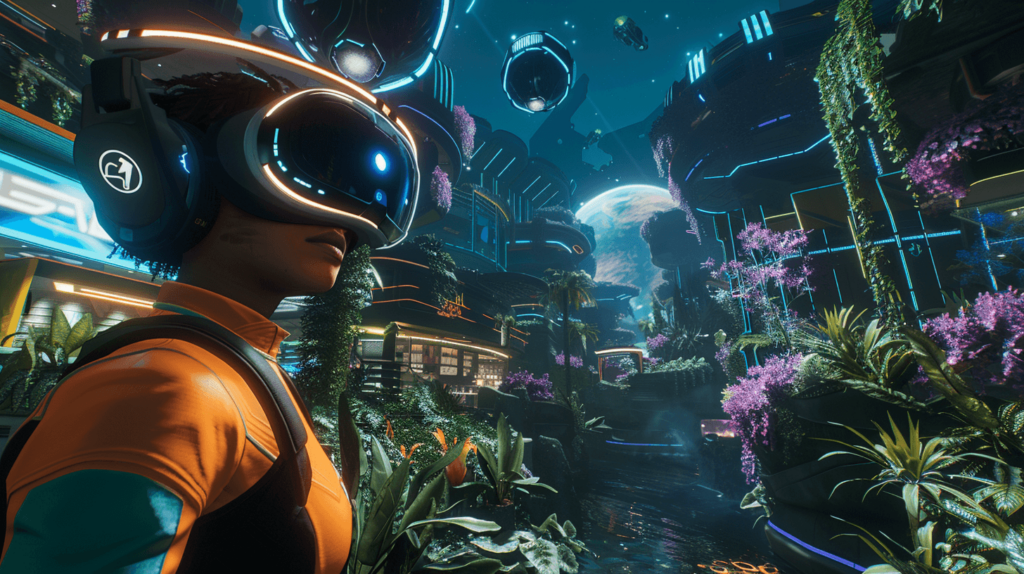
The synergy between VR game development and tailored outsourcing is unlocking new possibilities for studios of all sizes. As technology advances, the role of outsourcing will only expand, driving innovation and enabling smaller developers to compete on a global scale.
Predictions for the Next Decade:
Hyper-Realistic VR Worlds: Outsourced teams will use AI and photogrammetry to create ultra-detailed environments that blur the line between virtual and real.
Fully Immersive Gameplay: Specialized partners will develop groundbreaking haptic feedback and brain-computer interface integrations.
Global Collaboration Hubs: Studios and outsourcing teams worldwide will collaborate seamlessly, fostering diverse perspectives and creativity.
Conclusion: Outsourcing as the Gateway to VR Innovation
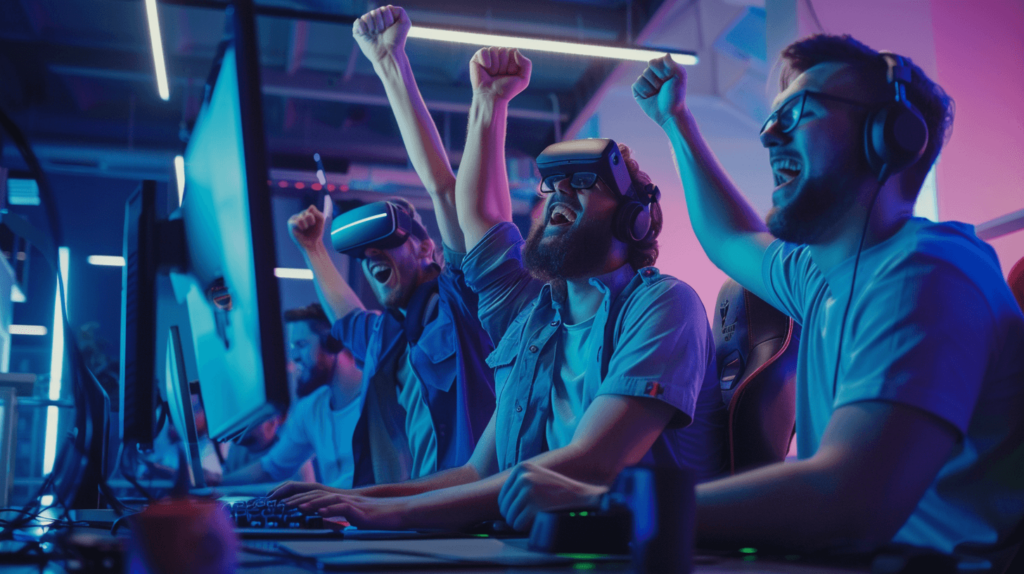
Tailored outsourcing is no longer just an option—it’s a strategic necessity for VR game developers aiming to stay ahead in a competitive market. From tapping into niche expertise to accelerating production timelines, outsourcing empowers studios to focus on what they do best: creating unforgettable gaming experiences.
By leveraging the power of tailored outsourcing, your studio can turn ambitious VR ideas into groundbreaking realities. Whether you’re an indie team or an established developer, the right outsourcing strategy can elevate your projects and unlock your full potential.
Are you ready to transform your VR game development process? Partner with experts who understand your unique needs. Explore our tailored outsourcing solutions today and bring your virtual worlds to life. Let’s build the future of immersive gaming together!




